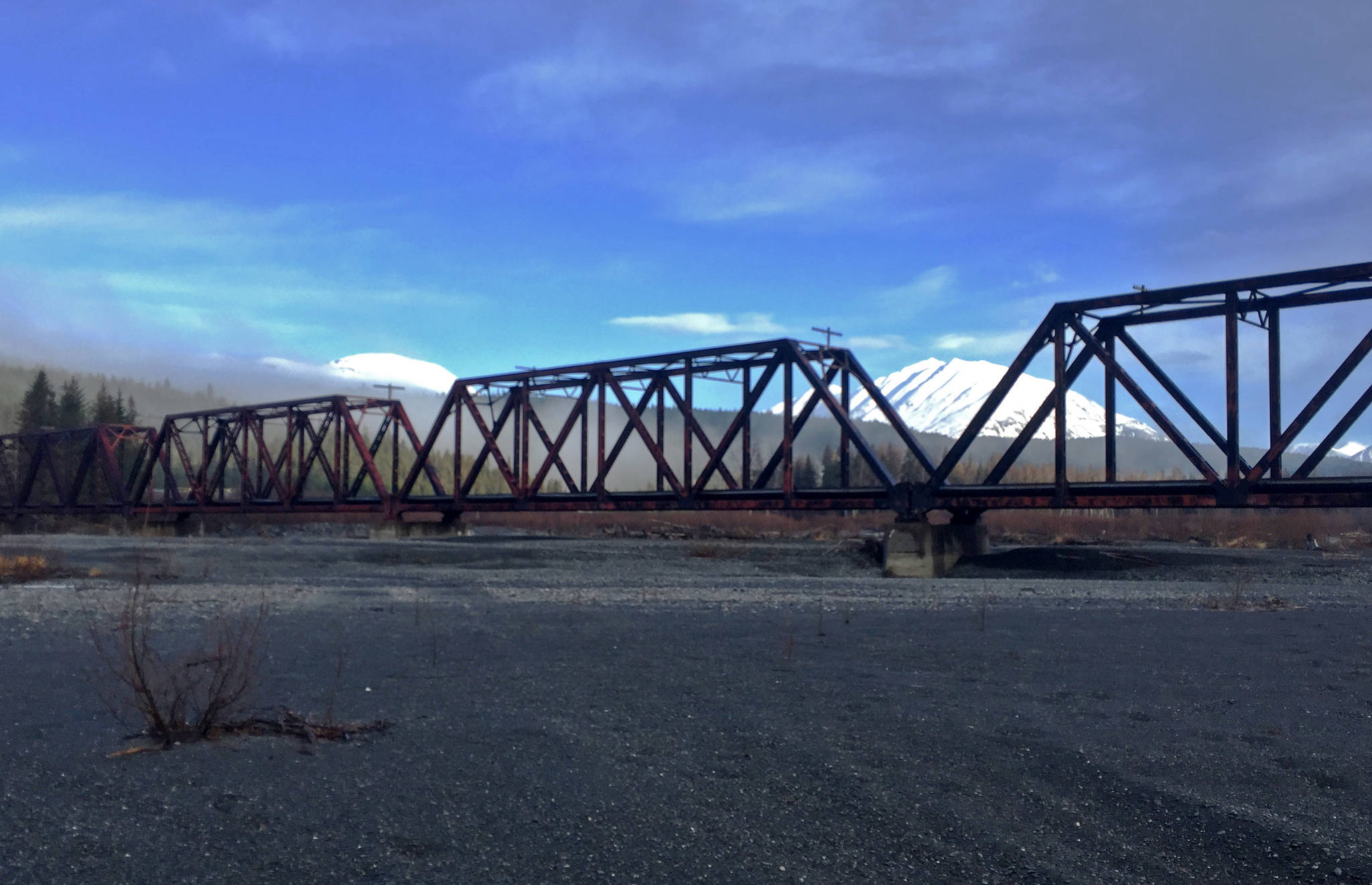A resolution before the Legislature attempts to put a stake in an ongoing disagreement between the Alaska Railroad Corporation and landowners next to its tracks.
The railroad, which maintains track over more than 400 miles from Resurrection Bay in Seward to Fairbanks, runs through the heart of Alaska’s most populated areas. In some places, the railroad runs through neighborhoods or parallel to popular trails. Completed by the federal government in 1923 and conveyed to the state to be run by the independent state-owned corporation the Alaska Railroad Corporation in 1982, the railroad transports thousands of people and tons of freight every year.
However, in recent years, the railroad’s work to keep people and objects out of its right of way up to about 80 feet from the tracks has caused conflict with neighbors. Neighbors have said the railroad corporation has put up fences, asked property owners to clear land within the right of way easement and clouded ownership titles over land disputes. Railroad administrators say they have an exclusive use easement and need to exert exclusive authority to keep pedestrians and operations safe.
Rep. Chuck Kopp (R-Anchorage) is asking the Legislature to step in with House Joint Resolution 38 this session.
“Hundreds of landowners along the Alaska Railroad Corporation’s right-of-way have had property rights confiscated and a cloud put on their title through an unlawful exclusive use easement claim the Alaska Railroad makes to the entire right-of-way,” he said during an April 6 hearing before the House Judiciary Committee.
HJR 38 would state that the Legislature views any exclusive-use easement transferred by the federal government in 1982 on private property to be illegal, would have to be disclosed and urges Alaska’s congressional delegation to correct the situation. Kopp said there are more than 200 people affected by the land conflict.
Property owners have said the U.S. Department of the Interior amended their original homestead patents, issued before the railroad was transferred to the state under the Alaska Railroad Transfer Act, without their knowledge in 2005 and 2006. Fred Rosenberg of Anchorage, who owns the Dimond Capital Company and Red Robin Alaska, wrote in a letter to the Legislature that the railroad charged him to store snow in the easement, which is technically on his property.
“I want to assure you and the Alaska Railroad that we will continue to work with the Alaska Railroad in a positive way to ensure the safety and transportation opportunities as they occur,” he wrote. “However, I believe that the Alaska Railroad has abridged my private property rights and that those rights should be restored.”
Railroad representatives maintain that the exclusive-use easement is legal in part because the federal government owned most of the railroad’s right-of-way in a fee simple title and had at least an exclusive-use easement in all of it was transferred, according to a document the corporation submitted to the legislature. The language in the railroad transfer act was clear that Congress intended to transfer exclusive use anyway, the document states.
Bill O’Leary, the president and CEO of the railroad corporation, said during the April 6 hearing that the Legislature isn’t the right place for the dispute to be resolved anyway — the court is.
“When it comes to a situation where reasonable people disagree about the nuances of a law, a court of law is where the decision on that point of law should be made,” he said.
People already trespass on the tracks, endangering themselves and railroad operations, O’Leary said. Without exclusive rights to the right-of-way, the railroad may have to slow some speeds because the operators may not know what’s coming down the track, he said.
“If the right of way is turned into a checkerboard of control from Seward to Fairbanks, we can’t make that assumption (of a clear right-of-way),” he said. “We may be forced to reduce our speeds … making it impossible to meet our commitments.”
It would also likely impact the railroad economically, O’Leary said. Petro Star Refinery CEO and President Doug Chapados wrote in a letter to the Legislature opposing the resolution that restricting the exclusive-use easement could impede expansion into the Interior. The General Teamsters Local 959 wrote in a letter opposing the resolution that it would reduce revenue to the railroad, which has already lost revenue in the past several years amid the ongoing state recession.
Recreational users are concerned, too. The Anchorage Snowmobile Club wrote in a letter of support that the Alaska Railroad Corporation has limited access to crossing its tracks before. Boaters on the eastern Kenai Peninsula were frustrated in summer 2016 after the Alaska Railroad Corporation welded a gate shut, blocking off an access point that boaters had frequently used to reach the water. Railroad representatives cited safety concerns about people trespassing in the right-of-way, which runs alongside the lake.
Rep. Lora Reinbold (R-Eagle River) said in the hearing that she wanted the railroad to consider traditional uses that occur in its right of way, including recreational.
“I think as a state we need to set an example and be good neighbors,” she said.
The House voted to support the resolution on April 20 and sent it to the Senate, where it is currently before the Senate Transportation Committee.
Reach Elizabeth Earl at eearl@peninsulaclarion.com.

